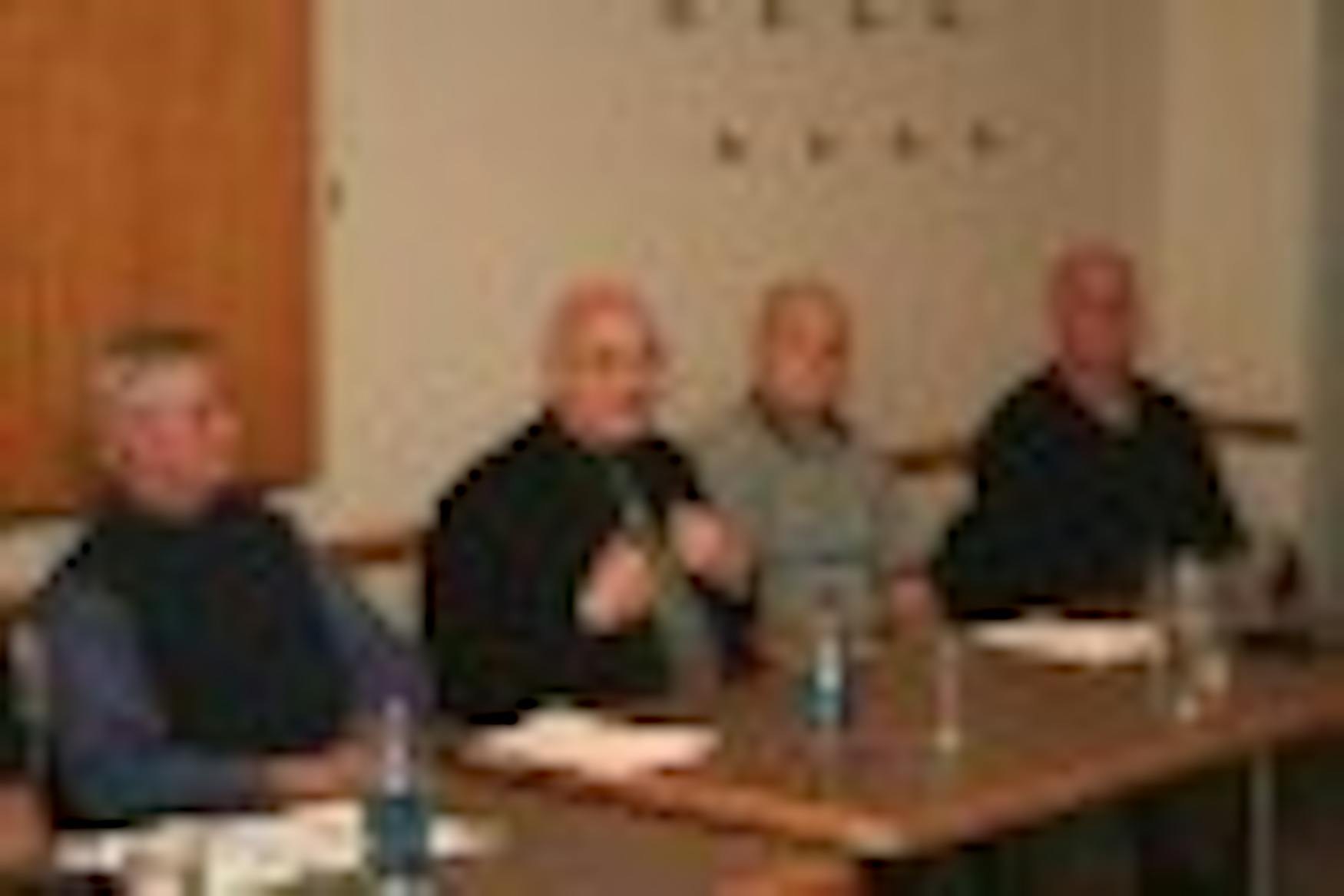New club hosts student rights workshop
The Advocates, a newly chartered club, conducted its first student workshop, called the Search and Seizure Workshop for On and Off Campus Housing, during which a panel composed of members of Brandeis Public Safety, Student Development and Conduct and Residence Life, the Waltham Police and various Brandeis clubs discussed issues germane to student search and seizure rights.The event, which took place last Wednesday, was also hosted by the Social Justice Committee and the Office of Students' Rights Advocacy and it was co-sponsored by Students for a Sensible Drug Policy and Peers Education about Responsible Choices.
According to the event's press release, The Advocates is a newly chartered club that was "formed early last semester with the goal of arming students with specific, practical knowledge of their rights and responsibilities as students of Brandeis University and residents of Waltham, Mass."
Approximately 25 students attended the workshop, which was moderated by The Advocates founder Seth Shapiro '09. The forum was divided into two sections of similar length, one dealing with rights of students on campus and another dealing with the rights of off-campus students. The event was divided as such since "Brandeis is its own institution: It can create its own rules" that differ from Waltham and U.S. law within the bounds of its campus, said Shapiro.
Students were handed information detailing their specific rights in regards to search and seizure, both on and off campus. In addition, Shapiro took time to convey to the gathered audience some advice for students from an American Civil Liberties Union attorney with whom he had spoken earlier in the day. This advice emphasized the right to remain silent, to be aware that detention or any kind of temporary custody requires reasonable suspicion and that a recording of a specific noise complaint in most cases must be relinquished by the police within 10 days (i.e. If a student believes that the police fabricated a noise complaint, the student can ask the police to produce the evidence).
A theme frequently repeated, both by Associate Dean of Student Life Maggie Balch and Director of Public Safety Ed Callahan, was that the safety of all members of the University is paramount and that the rules and regulations set and enforced by the University are in place in order to maintain the safest environment possible. "The University's main goal or main issue is to provide a safe campus," Callahan said.
Members of the panel were willing to accept that, in some ways, the issues of search and seizure are nuanced problems. In addressing her discomfort with invading students' privacy without serious reason, Balch said, "We have lots of things we need to wrestle with." However, other members of the panel were adamant that in some areas of law enforcement, the facts are very cut-and-dried. In particular, SergeantBrian Lambert, the Waltham Police Department liaison to colleges, said that although he didn't think that a minimum drinking age of 21 was necessary, he would continue to prohibit underage drinking as long as the law remained in effect.
In the off-campus rights discussion, Jerry Kaufman of the community services division of the Waltham Police Department said that in regard to college parties causing conflict and disruption within the community, "things have gotten much, much better." Detective Lieutenant Steve Champion "agreed with much of what" Kaufman said in regards to the generally improved relations between college students and the Waltham community.
Champion was also explicit in telling students that the Waltham Police Department does not go out of its way to interfere with the lives of college students. When the police break up a party, he said it is typically in response to a loud noise complaint, he said. However, that is not to say that a party will be broken up just because the police receive a loud noise complaint. Champion said that the police will make their own assessment of the situation, and if they judge that the neighbor making the complaint is being unreasonable, they will clearly take this into account. He did articulate, however, that if multiple complaints were received, the party would almost certainly be broken up.
Other issues discussed throughout the course of the forum included the covering of smoke detectors in dorm rooms. Callahan disparaged what he referred to as "the cavalier attitude among the population" toward covering up smoke detectors with plastic bags and warned that people can die as a result of such actions.
Proper conduct when dealing with a police officer was also discussed. While Champion acknowledged that in general, students do not have to grant a police officer access to their houses unless the officer has a signed warrant, he also made a point of reminding students that there are other lawful ways of disrupting parties, such as arresting each person who leaves for noise disturbances. Shapiro mentioned that student rights do not include the right to disrespect a police officer.
The panel also addressed the recent decriminalization of marijuana under Question 2, as voted upon by the Massachusetts electorate. Callahan emphasized that just because marijuana has been decriminalized does not mean that it has become legal.



Please note All comments are eligible for publication in The Justice.